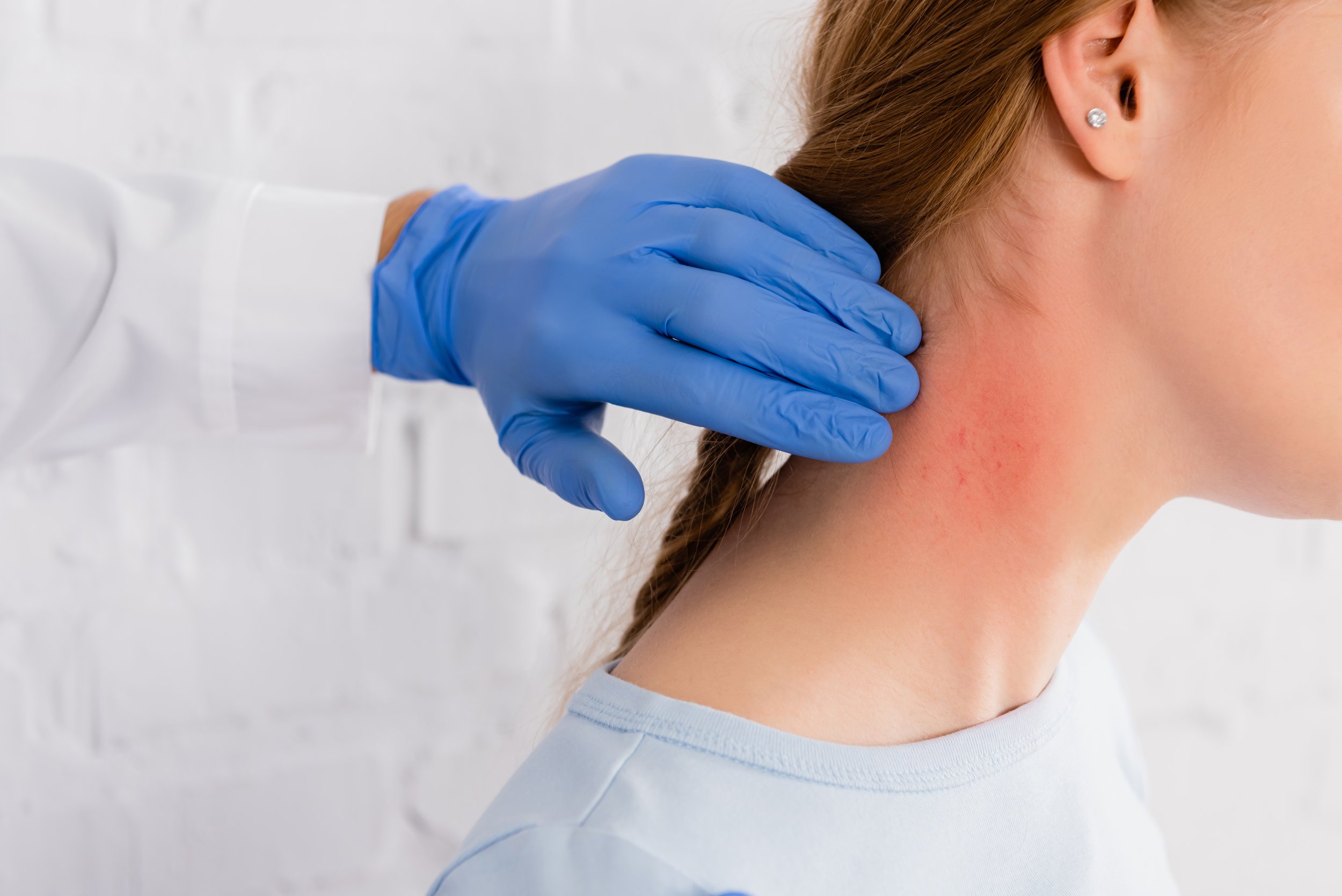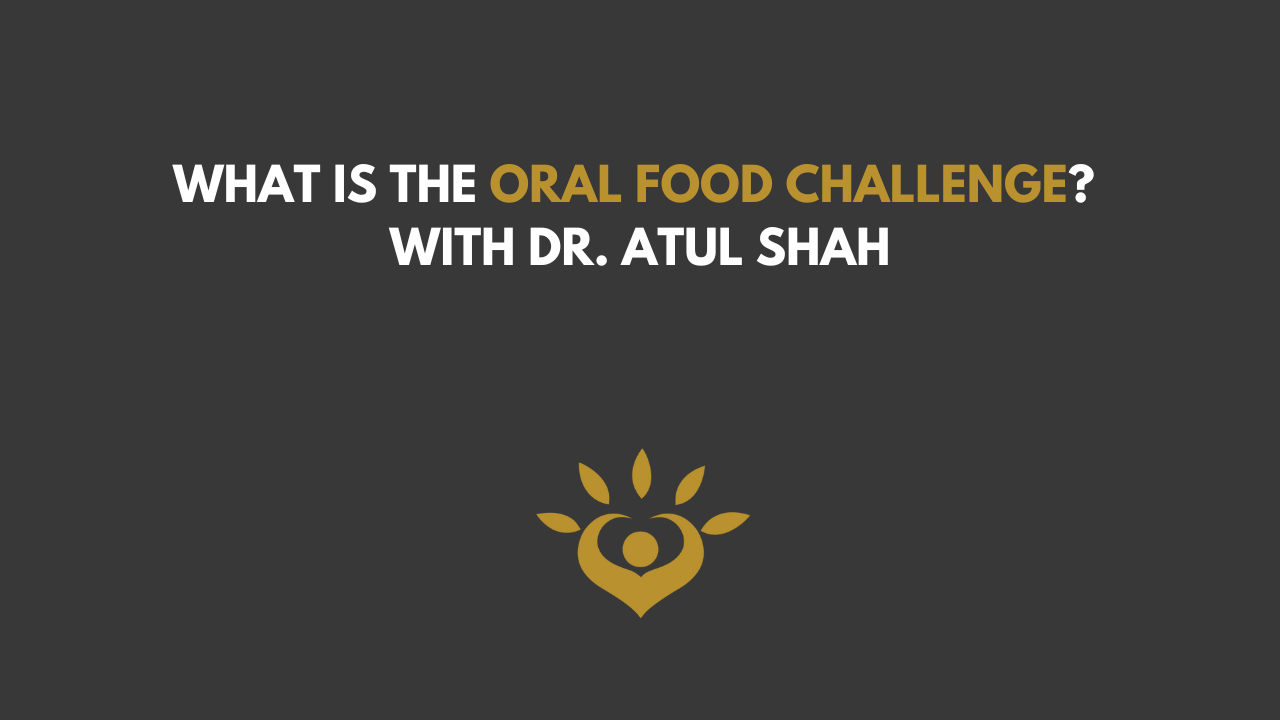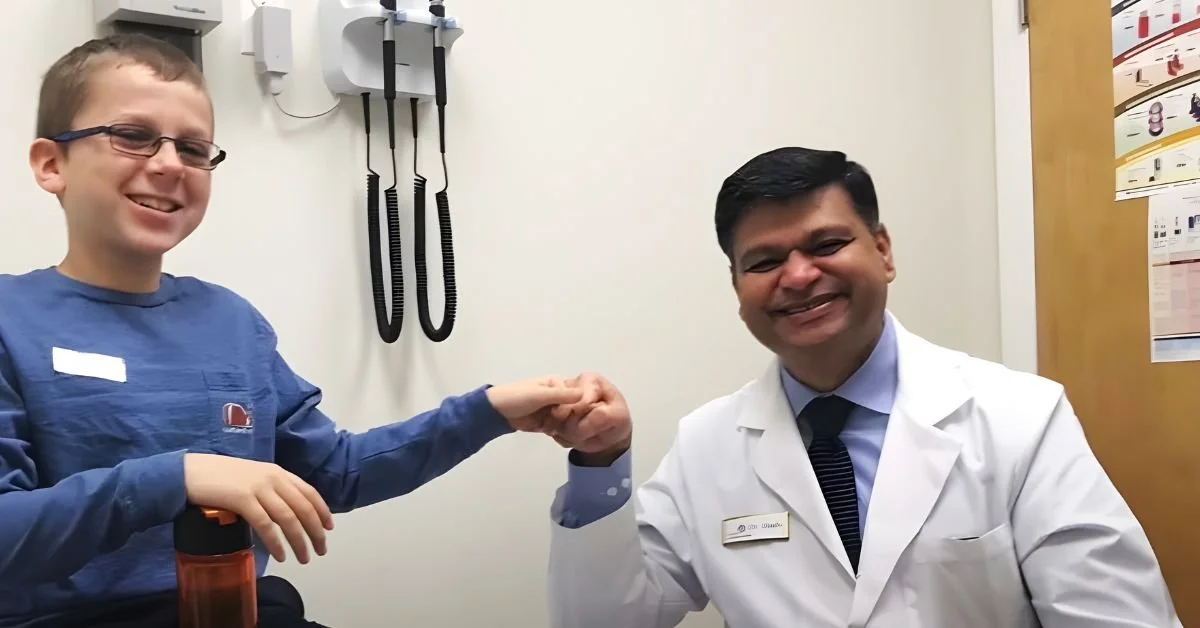Chickpea Allergy
Treatment & Testing
Chickpea Allergy Treatment in NYC, Manhattan, Upper East Side
Chickpeas are a common allergen, particularly in the Mediterranean, South Asian and Middle Eastern diets. Dr. Atul Shah and the team at NY Food Allergy & Wellness (NYFA) provide expert diagnosis and treatment for chickpea allergies, offering comprehensive and customized care plans. Our experience at NYFA is that many South Asian origin patients with chickpea allergy have associated Indian Lentils (Dals) allergies. There are many varient of Indian Lentils and their allergy needs to be identified based on history or specific tests. These Dals include Chana Dal, Toovar Dal, Masoor Dal, Urad Dal, etc., besides the regular red lentils. Given chickpeas’ prevalence in plant-based diets and health foods, an accurate diagnosis and targeted management are essential for those with allergies.
Understanding Chickpea Allergies
A chickpea allergy occurs when the immune system mistakenly identifies chickpea proteins as harmful, triggering an allergic response. Reactions to chickpeas can vary from mild to severe and, in rare cases, can lead to anaphylaxis. Chickpeas are part of the legume family, so patients with chickpea allergies may also react to other legumes. For those with multiple legume allergies, multi-food desensitization can be beneficial, allowing NY Food Allergy & Wellness to address various legume allergies simultaneously.
Symptoms and Diagnosis of Chickpea Allergies
Symptoms of chickpea allergies may include:
Skin Reactions: Rashes, itching, hives
Respiratory Issues: Shortness of breath, wheezing, nasal congestion
Gastrointestinal Symptoms: Abdominal pain, nausea, diarrhea
Anaphylaxis: A severe reaction that requires urgent medical attention
Food Allergy
Testing for Chickpeas
Source: Lincoln Diagnostics
-
Skin prick tests are a quick and effective way to identify specific allergens. During the test, a small amount of allergen is placed on the skin, which is then gently pricked to allow the allergen to enter. Results are typically visible within 15-20 minutes, making it a fast and reliable option. Needle-free tests are ideal for children and needle-phobic patients. Using advanced technology, these tests provide precise results without the discomfort associated with traditional testing methods.
-
Blood tests are highly accurate and comprehensive, suitable for all age groups. They measure the presence of specific IgE antibodies in the blood, which can indicate an allergy. This method is particularly useful for patients who cannot undergo skin testing. We are experts in making these decisions.
-
At NY Food Allergy & Wellness, we are proud to offer the Basophil Activation Test (BAT), a cutting-edge diagnostic tool for identifying food allergies. This advanced test measures the activation of basophils, a type of white blood cell, in response to allergens. The BAT provides highly accurate results and can detect allergic reactions that might not be identified through traditional testing methods.
We are the only certified lab in the region offering the Basophil Activation Test. Our certification ensures that we maintain the highest standards of accuracy and reliability in our testing procedures. By choosing NY Food Allergy & Wellness for your allergy testing needs, you can be confident that you are receiving the most advanced and reliable diagnostics available. In the absence of relaible commercial antigens or antibodies, at times, our team develops new tests for uncommon allergens. At times, technical challenges may not allow us to do BAT for every uncommon food.
The Basophil Activation Test is particularly useful for patients who have complex allergy profiles or who have not found answers through conventional tests. It can also be used to monitor the effectiveness of ongoing allergy treatments, providing valuable insights for personalized care plans.
Key benefits of the Basophil Activation Test include:
High Accuracy: Detects allergic reactions that may not be visible through skin prick or blood tests.
Comprehensive Analysis: Measures the specific activation of basophils, providing detailed information about allergic responses.
Certified Lab: Conducted in our certified lab, ensuring the highest standards of testing quality and reliability.
If you suspect you have a food allergy and need precise and reliable testing, the Basophil Activation Test at NY Food Allergy & Wellness is an excellent choice. Contact us today to learn more about this innovative test and to schedule your appointment. -
Oral Food Challenges are considered the gold standard for diagnosing food allergies. During an OFC, the patient consumes small amounts of the suspected allergen under strict medical supervision to observe any reactions. This method provides definitive results and is conducted with the utmost care and safety.
Source: Lincoln Diagnostics
The FATE™ Program
Food Allergy Tolerance Enhancement
PHASE 4
Sublingual or Oral
Immunotherapy
PHASE 3
Oral Food
Challenges
PHASE 5
Bite Proof to
FREE Eating
Understanding the FATE™ Program with Dr. Atul Shah
Dr. Atul Shah explains key components of the FATE™ program in a series of videos, including topics like "What is an Allergy?", "What is the Oral Food Challenge?", and "What is Oral Immunotherapy?". These videos provide essential insights into advanced food allergy treatments available in NYC, emphasizing the expertise of Dr. Shah and the comprehensive care offered at the Upper East Side clinic. This positions the clinic as a leading choice for anyone seeking a food allergist in NYC.
15,000 Success Stories
Click tabs to slide between info
BASOPHIL
ACTIVATION TEST
The Basophil Activation Test (BAT) is a blood test that measures the activation of basophils, a type of white blood cell, in response to specific allergens. This test is particularly useful in diagnosing food allergies.
Process: In BAT, basophils are isolated from a blood sample and exposed to potential allergens. If the patient is allergic to a specific substance, the basophils will activate, which is detected using flow cytometry.
Advantages: This test is highly sensitive and can help in cases where traditional skin or blood tests are inconclusive. It also poses minimal risk to the patient, as it is performed in vitro (outside the body).
NYAIRL & NYFA Connection: NYAIRL, associated with NY Food Allergy & Wellness (NYFA), is a leading research facility and the first and only laboratory in New York State with a CLIA-certified facility to offer BAT. This state-approved service places NYFA at the forefront of allergy research and treatment, ensuring highly accurate and risk-minimized diagnostic services for food allergies.
ORAL FOOD CHALLENGE
OFC is a medically supervised test to diagnose food allergies. It's considered the gold standard for allergy testing.
Process: During an OFC, the patient consumes gradually increasing amounts of the suspected allergenic food in a controlled setting. Medical staff monitor for any reaction.
Purpose: It's used to either confirm a food allergy diagnosis or to check if a patient has outgrown an allergy.
Safety: Given the risk of an allergic reaction, OFCs are always conducted in a clinical setting with emergency response capabilities.
SUBLINGUAL IMMUNOTHERAPY
SLIT is a form of immunotherapy where the patient is given small doses of an allergen under the tongue to boost tolerance to the substance and reduce symptoms.
Process: The treatment involves administering gradually increasing amounts of the allergen in liquid or tablet form under the tongue. The patient holds it there for a few minutes before swallowing.
Purpose: SLIT is primarily used for treating allergic rhinitis and asthma, and it's being explored for food allergies. It's a convenient alternative to allergy shots, as it can be self-administered at home.
Duration: Treatment typically spans over a few years, with the initial phase of dose escalation followed by a maintenance phase.
ORAL IMMUNOTHERAPY
OIT is a medical treatment for food allergies where the patient consumes small amounts of the allergenic food, with the amount gradually increased over time.
Process: The process begins with extremely low doses, followed by periodic and gradual increases, usually under strict medical supervision. This is continued until a maintenance dose is reached.
Objective: The goal of OIT is to desensitize the patient to the allergen, reducing the severity of reactions or helping them achieve tolerance.
Foods Treated: Commonly used for allergies to foods like peanuts, milk, eggs, and tree nuts.
FOOD ALLERGY SUCCESS STORIES
Browse through 100+ Videos & Media including Success Stories, FAQ’s, and News Interviews.
Wheat Allergy
Peanut Allergy
Milk Allergy
Dr. Atul Shah: Changing Lives through Food Allergy Desensitization
Dr. Atul Shah is the esteemed founder of NY Food Allergy & Wellness near The Upper East Side of Manhattan, known for his exceptional work in treating food allergies. His expertise is recognized with prestigious accolades, such as the Patients’ Choice Award, Top M.D. Accolades, and America’s Top Physician. As an innovator, Dr. Shah has expanded access to food allergy care globally through the Global Food Initiative, using advanced technology.
Expanding the Horizons
of Food Allergy Care
From his medical beginnings in India to his establishment of New York Food Allergy & Wellness on Long Island, Dr. Shah’s career has been a journey of impact and innovation. In 2023, he expanded his practice to Park Sixty, NYC, setting a benchmark for food allergy care with the introduction of groundbreaking treatments and patient-centered services.
About Dr. Atul Shah: Testimonials
Dr. Atul Shah Interview with Donna Drake
Food Allergy Success Story: Cameron
Managing Chickpea Allergies in Daily Life
Avoiding chickpeas requires careful attention to ingredient lists and awareness of hidden sources.
Reading Food Labels: Chickpeas may appear as ingredients in items such as “garbanzo bean flour” and “hummus.”
Identifying Hidden Sources: Common in vegetarian and vegan foods, chickpeas can be found in snacks, dips, and baked goods.
Dining Out: It’s crucial to communicate with restaurant staff to avoid chickpea-based ingredients, especially in ethnic cuisines.
Emergency Preparedness: Carrying epinephrine and understanding its use is essential in the event of accidental exposure.
Common Foods Containing Chickpeas:
Hummus and chickpea dips
Falafel and chickpea salads
Some gluten-free or vegan products
Managing Multiple Food Allergies
Achieving food allergy freedom, especially with multiple food allergies, is challenging but possible with the right care. At NY Food Allergy & Wellness, we specialize in comprehensive management and treatment to help patients achieve food allergy desensitization.
Diagnostic Approach
We begin with:
Detailed Patient History: Reviewing the patient’s medical history and symptoms.
Advanced Testing: Utilizing skin prick tests, blood tests, and the Basophil Activation Test to identify specific allergens and assess reaction severity.
Personalized Treatment Plans
Our customized plans aim for food allergy desensitization and may include:
Oral Immunotherapy (OIT): Gradually introducing allergens to desensitize the immune system.
Sublingual Immunotherapy (SLIT): Administering allergens under the tongue to build tolerance.
Medications: Antihistamines can relieve mild symptoms, while epinephrine is used for severe reactions like anaphylaxis. Omalizumab (Xolair) injections can be considered to reduce the risk or reactions.
Dietary Management: Guidance on safe food choices and avoidance strategies.
Emergency Preparedness: Training on using epinephrine auto-injectors and creating action plans for accidental exposures.
Continuous Support
Regular Follow-ups: Monitoring progress and adjusting treatment plans.
Patient Education: Providing resources and training for effective management.
Support Groups: Facilitating patient support groups for shared experiences and strategies.
Why Choose
NYFA?
Personalized Treatment Plans:
NYFA offers individualized care with personalized OIT, SLIT, BAT, and OFC treatments, ensuring each patient's unique needs are met for effective food allergy desensitization.
15,000 Success Stories:
With over 15,000 success stories, NYFA demonstrates a track record of helping patients achieve "Food Allergy Freedom," showcasing a high level of expertise and reliability.
Innovative FATE™ Program:
Our exclusive Food Allergy Tolerance Enhancement (FATE™) program guides patients to new beginnings, blending cutting-edge treatments with a holistic approach to food allergy management.
Experienced Leadership:
Under the leadership of Dr. Atul Shah, an award winning pioneer in food allergy treatment, NYFA offers expertise and dedication to advancing allergy care.
State-of-the-Art Facilities:
Equipped with the latest technology and modern facilities, NYFA creates a safe, luxurious, and comfortable environment for top of the line food allergy treatments.
Community and Advocacy:
NYFA is deeply involved in the food allergy community, advocating for awareness and providing resources to empower patients in their journey towards desensitization.

Upper East Side Location:
Award Winning Food Allergist in NYC
NYC Location
110 East 60th St.
Suite 708
New York, NY, 10022
Hours of Operation
Tuesday: 9am-5pm
Wednesday: 9am-5pm
Thursday: 9am-7pm
Friday: 9am-5pm
Saturday: 9am-2pm
Sunday/Monday: Closed
Locations We Serve
We proudly serve the following locations in NYC:
Manhattan, Upper East Side, Queens
Staten Island, Brooklyn, The Bronx
Midtown, SOHO, NOHO, Upper West Side
Central Park South, Sutton Place, Westchester, Upstate NY, Connecticut, New Jersey

SCHEDULE TODAY
SCHEDULE TODAY
Ready to take control of your food allergies? Let our premier allergists guide you. Book your appointment today and start your journey to freedom together!

Frequently Asked Questions
What are the symptoms of chickpea allergy?
Symptoms of chickpea allergy include skin rashes, itching, hives; respiratory issues like shortness of breath, wheezing, and nasal congestion; gastrointestinal symptoms like abdominal pain, nausea, diarrhea; and anaphylaxis, a severe reaction that requires urgent medical attention.
What foods to avoid if you are allergic to chickpeas?
Avoid foods containing chickpeas, such as hummus, falafel, and chickpea flour, which is often used in gluten-free and vegan products. Carefully read food labels for hidden sources of chickpeas. (Source: Food Allergy Research & Education). At NYFA, we recommend checking for allergies to other legumes and avoid them, if necessary.
How common is chickpea allergy?
Chickpea allergy is more common in regions where chickpeas are a dietary staple, such as in the Mediterranean, South Asian, and Middle Eastern diets. However, with the rise in plant-based foods, chickpea allergies are being reported more frequently in the United States. (Source: American College of Allergy, Asthma & Immunology)
What foods are high in chickpeas?
Foods high in chickpeas include hummus, falafel, chickpea salads, and baked goods made with chickpea flour. Chickpeas are also used in many vegetarian and vegan protein sources. (Source: Food Allergy Research & Education)
What foods is chickpea hidden in?
Chickpeas can be hidden in gluten-free, vegetarian, and vegan products, where chickpea flour or ground chickpeas are often used as protein substitutes. Reading labels is essential to avoid accidental exposure. (Source: American Academy of Pediatrics)
What is the Best Treatment for Chickpea Allergies?
The best treatment for chickpea allergies involves avoiding chickpeas, emergency preparedness, and desensitization therapies like Sublingual Immunotherapy (SLIT) and Oral Immunotherapy (OIT). SLIT and OIT introduce small amounts of chickpea protein to reduce reaction severity over time. At NY Food Allergy & Wellness, our FATE™ Program provides a tailored treatment approach to manage chickpea allergies effectively and safely.
How Successful is Chickpea Allergy Treatment?
Chickpea allergy treatments, particularly through desensitization like OIT and SLIT, have shown positive results in increasing tolerance to chickpeas and reducing severe reactions. NY Food Allergy & Wellness’s FATE™ Program has demonstrated effective outcomes, allowing patients to manage their allergies more freely.
Why Choose NY Food Allergy & Wellness for Chickpea Allergy Treatment?
Choose NY Food Allergy & Wellness for chickpea allergy treatment because of our:
Specialized Expertise: Dr. Atul Shah is a recognized authority in the treatment of food allergies, including chickpeas.
Advanced Therapies: Utilizing the latest treatment options like Oral Immunotherapy (OIT) to manage chickpea allergies.
Comprehensive Care Approach: Individualized care plans and ongoing support for effective allergy management.
Cutting-Edge Facilities: Our clinic is equipped with state-of-the-art diagnostic equipment to deliver accurate and comprehensive testing.

















































